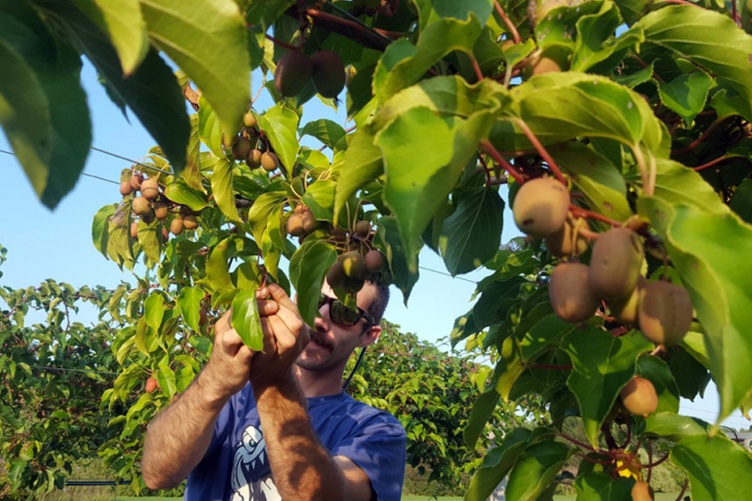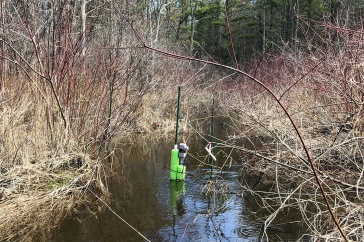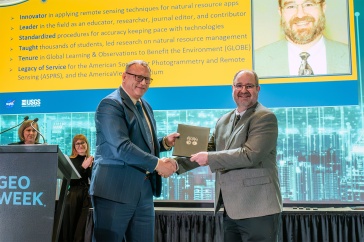
Contoocook resident Will Hastings, who will graduate this May with a master’s in biology, agricultural sciences, conducted research with New Hampshire Agricultural Experiment Station scientist Dr. Iago Hale. Learn about why he chose UNH for his graduate studies, what he researched, and what he's gained from his research experience.
Why did you decide to get your graduate degree from UNH?
I had been working at the NH Agricultural Experiment Station's Woodman and Kingman horticultural research farms for different researchers during my undergraduate studies and had become increasingly involved with kiwiberry production. Pursuing my graduate degree here at UNH gave me an opportunity to continue developing best practices for a relatively new fruit crop.
What was the focus of your research interests and why?
My primary research projects focus on the as post-harvest storage and ripening of kiwiberry fruit as well as the development of best production practices for kiwiberry producers in the Northeast. This research is intended to give growers a better foundation to make management decisions on. Despite being grown in the area for more than 140 years, there is very little information available regarding kiwiberry fruit production. Other kiwiberry research I’m working on includes vine dormancy regulation and the collection of historically disseminated genetic material throughout the Northeast.
What was it like having experiment station researcher Dr. Iago Hale as your mentor?
I’ve been fortunate to work with Iago for the past few years. Through his guidance I have branched out and made some great connections both regionally and internationally. He’s been a great leader and partner throughout this experience.
What would you tell prospective graduate students about your research experience? What do you feel you gained most from it?
I would tell prospective students to pursue a project that really inspires them and make the most of the opportunities presented to you. I feel that the network of growers and researchers I’ve developed over the years has been one of the greatest assets I’ve gained.
What are your plans after graduation?
I’ll be continuing to manage Dr. Hale’s kiwiberry vineyard in addition to providing propagation and consultation services to regional producers.
Founded in 1887, the NH Agricultural Experiment Station at the UNH College of Life Sciences and Agriculture is UNH’s original research center and an elemental component of New Hampshire's land-grant university heritage and mission. We steward federal and state funding, including support from the USDA National Institute of Food and Agriculture, to provide unbiased and objective research concerning diverse aspects of sustainable agriculture and foods, aquaculture, forest management, and related wildlife, natural resources and rural community topics. We maintain the Woodman and Kingman agronomy and horticultural research farms, the Macfarlane Research Greenhouses, the Fairchild Dairy Teaching and Research Center, and the Organic Dairy Research Farm. Additional properties also provide forage, forests and woodlands in direct support to research, teaching, and outreach.
Related Content
Yes, You Can Grow (Hardy) Kiwis in New England
Sample Kiwiberries at Farmers Markets Across New Hampshire Sept. 15-28
UNH to Conduct Market Feasibility Study for Kiwiberries
Hale Lab: Kiwiberry Research and Breeding at the NH Agricultural Experiment Station
















































